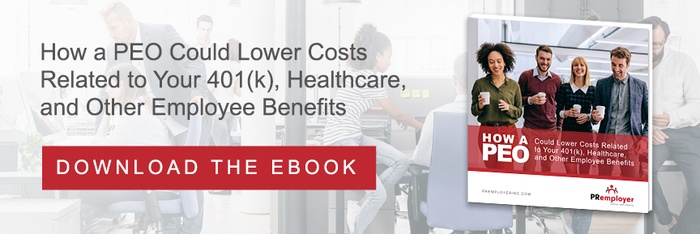
For small companies, managing HR is a huge undertaking. There are minimum requirements even if you only have a handful of employees, and those duties have to be taken on by somebody. When there is no HR team, it distracts the owner or other staff from their regular duties. When there is an HR manager, all the necessary tasks can easily make them overwhelmed. They can easily end up overburdened.
Even if there’s too much work for one person, it may not be cost-effective to increase your HR team’s size. If the workload is too much for one person, HR outsourcing may be a more sensible option.
What is HR Outsourcing?
HR outsourcing, in this context, is contracting with a third-party company to handle administrative burdens like payroll and benefits administration. The outsourcing partner generally handles the most tedious yet complex aspects of HR, freeing internal staff to deal with things that require their intimate knowledge of your company.
There are many ways to handle HR outsourcing, ranging from payroll processing companies to professional employer organizations (PEOs). PEOs provide full-service HR outsourcing, including using co-employment to give you access to better, more comprehensive benefits at a lower cost. Experts outsource HR because it saves time and money while helping their business grow.
If you answer "yes" to any of the following questions, it's time to consider HR outsourcing.

Are You Spending Too Much Time Managing HR?
When your small business doesn't have an HR department, you tend to take on those duties yourself. It's a typical pattern to assign miscellaneous stuff that doesn't have a specific employee to yourself. However, it is just one more responsibility you have to handle. It takes you away from growing your business and engaging in the revenue-generating activities you should be doing. Payroll alone can take hours every pay period. Collecting new hire forms is also time-consuming, and if you think about the value of your time, you will quickly understand you’re losing money when you use your own time for these mundane HR matters.
If you are managing your own HR, this is never the best use of your time. Outsourcing gives you back the hours you are spending processing payroll twice a week, the time you spend on the routine aspects of onboarding employees, and the time you spend answering questions about benefits. It also means that your employees have somebody other than you to go to with their complaints and concerns, which can reduce the chilling effect that happens when the only person to talk to about a problem is the person who can fire them. It helps make sure that you get accurate information on the issues in your company.
Do Several People Oversee Your HR?
Another way small businesses handle HR is to split the responsibilities across upper management and other employees. When a company can't afford or justify a single HR manager or team, things get spread around. That is inconvenient for employees who don't know who to go to when they have a problem. The more communication and coordination going back and forth between different individuals, the less efficient the process.
Splitting responsibilities also distracts your employees from doing their assigned responsibilities. That makes it more likely for issues to slip through the cracks. It's very easy, for instance, for everyone to think somebody else finished out a benefits enrollment until the employee notices they haven’t paid their health insurance premiums.
Outsourced HR handles these responsibilities and makes sure they are properly centralized. Because they are full-time experts, they can also do everything much more efficiently by leveraging their expertise and the tools they know how to use and have carefully selected over the years.
Do You Need to Save Money?
Every business needs to find ways to save money without cutting corners and affecting your product or service quality. Your HR costs include risk management and the time employees spent managing HR rather than on revenue-generating activities.
Although outsourcing HR looks like it costs money, in the long term, it saves it. That is particularly true if you choose a PEO. You can get substantial savings on employee benefits and workers' compensation insurance and rely on experts who are much less likely to make mistakes. You’ll also avoid high compliance costs.
Partnering with a PEO can also save your company money in other ways, including reduced employee turnover, more efficient processing, and improved company culture.
Are You Concerned About Liability?
HR managers navigate the complex field of legal and regulatory requirements. These include:
- Hiring issues and employee training
- EEOC requirements
- Filing payroll tax
- Handling sexual harassment or discrimination complaints and investigations
- Developing and issuing disciplinary reprimands
- Handling termination discussions
- Developing appropriate workplace policies and employee handbooks
They need to understand what all of your liabilities are. When HR is being done by personnel who are not trained HR specialists, liability risk inevitably increases. Simple HR mistakes can result in thousands of dollars in fines.
By outsourcing HR, you gain the expertise needed to handle your most complex compliance issues easily and quickly. Their people have the necessary training to handle it and have seen it all with multiple clients. They fully understand legal requirements, including issues that might arise if you have remote employees in multiple states. They can help you feel more confident that your taxes will be filed properly.
If you answer any of these questions with a yes, or find yourself nodding along, you need HR outsourcing services. Outsourcing HR will save you time and money, reduce your compliance risk, and allow you to provide better services to your employees.

